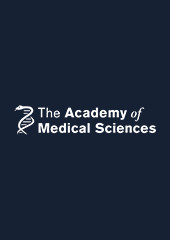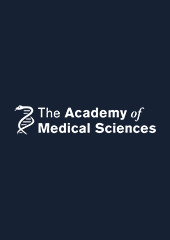On this page
- CATAC 2026 - competitions
- What is a clinical academic in training?
- Event competitions
- Eligibility criteria
Are you an early career researcher in medicine or health looking for a chance to present your research, perhaps for the first time?
CATAC is a cross-speciality conference for aspiring clinical academics across disciplines, currently working in the UK or Ireland.
You will have the opportunity to:
- Develop your presentation skills
- Meet peers and senior academics to build your network
- Raise your profile within the clinical academic and research community
CATAC 2026
CATAC 2026 will be held on Wednesday 29 April at the MRC Laboratory of Medical Sciences in London.
Applications for the competitions are now closed
- Registration to attend CATAC 2026 is expected to open in early 2026
- If you have any questions about CATAC, please contact [email protected]
- For updates on upcoming events, please follow us on LinkedIn and X (formerly Twitter)
What is a clinical academic in training?
We use the term 'clinical academics in training' to refer to any early-career researcher in medicine or health, with a clinical background in:
- Medicine
- Nursing
- Midwifery
- Dentistry
- Veterinary sciences
- Physiotherapy
- Radiography
- Any other clinical profession
Event competitions
We hold three competitions at CATAC:
Postdoctoral plenary competition
This competition is for clinical researchers who have passed their PhD viva by the abstract submission closing date. If selected, you will be asked to prepare a 10-minute oral presentation, followed by 5 minutes of questions from the audience.
A panel of judges will score the presentations. The winner and runner-up of this competition will receive a monetary prize.
Predoctoral plenary competition
This competition is for clinical researchers who have not yet passed their PhD viva by the abstract submission closing date. If selected, you will be asked to prepare a 5-minute oral presentation, to be followed by 2 minutes of questions from the audience.
A panel of judges will score the presentations. The winner and runner-up of this competition will receive a monetary prize.
Poster exhibition
This exhibition is for all clinical researchers. This year, instead of a poster competition, there will be a poster exhibition held without formal judging. This will give presenters the opportunity to present their work while networking and engaging with their peers.
Due to limited capacity at the venue, there will be a selection process. This will be randomised, while ensuring a minimum number of places go to those who are from under-represented backgrounds.
Read our CATAC 2026 competition guidelines
Participation in the competitions is not compulsory. You can attend the conference without competing.
Eligibility criteria
To be eligible for the CATAC event competitions, you must be an early-career researcher in medicine or health. While we welcome applications from all fields of clinical research, we encourage applications from nursing, midwifery and allied health professionals. All applicants must meet all the following criteria:
- Be based in the UK or Ireland
- Either studying for your PhD or have completed your PhD and are conducting research as an early-career post-doctoral researcher
- Conducting academic research that is related to your clinical background
- Hold a relevant undergraduate and/or master’s degree, for example: medicine, nursing, midwifery, dentistry, veterinary sciences or other health professional degree
If you have any questions regarding your eligibility, please contact [email protected]
CATAC is generously supported by Wellcome and The Lord Leonard and Lady Estelle Wolfson Foundation.

